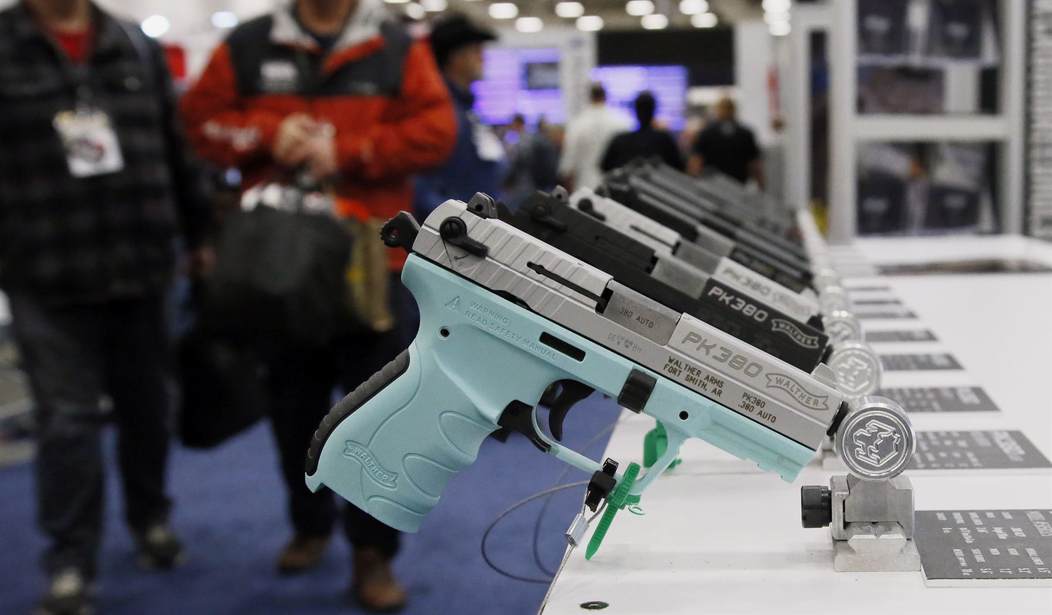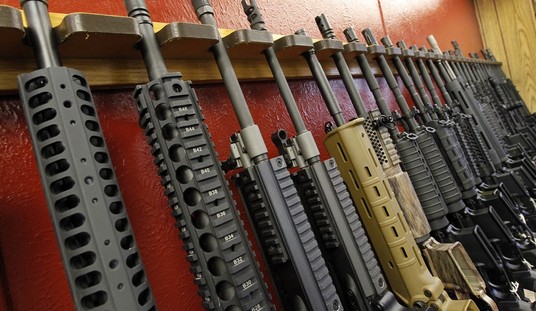Over the last year, we’ve seen a major spike in violent crime. That’s never a good thing. After all, each of those violent crimes means there’s a victim, often an innocent person who did nothing to deserve what happened. It’s also generally used as an excuse to push for more gun control.
In Kentucky, that’s as true as almost anywhere else you care to name.
However, some of the media has decided that pushing for gun control as part of their “reporting” is responsible journalism.
Some lawmakers, Louisville city officials and community leaders said this week they were troubled by the proliferation of guns in Kentucky, with several directing harsh criticism at the city and state for failing to do more to stop the flood of firearms and the damage they inflict.
They were responding to the Courier Journal’s three-part series “Awash in Guns,” which was published last week and examined how an arsenal of deadly weapons flows incessantly through Louisville and Kentucky, often fueling violence.
Some key findings of the three-part series include:
- Thousands of guns were reported stolen in neighborhoods across Louisville over the years, swiped from unlocked cars, homes, gun shops and police officers. Thousands more were likely stolen but never reported to police.
- At least 1,000 stolen guns were later carried by children, clutched by suicidal men or tied to crimes such as robberies, drug deals and murders.
- Kentucky’s federally licensed gun dealers are a constant target of gun thefts and straw purchases. And only a fraction of these dealers is inspected each year by a federal agency that perennially struggles with stagnant budgets and staffing.
- Unregulated gun deals flourish online, where sellers easily sidestep social media bans on private sales of guns and ammo.
- Police in Kentucky take thousands of guns off the streets every year. A state law puts many of them right back.
- Kentucky guns are not contained within the state’s borders. In 2019, federal Bureau of Alcohol, Tobacco, Firearms and Explosives tracing center data showed the commonwealth was the eighth largest per-capita exporter of guns.
Instead of trying to disrupt these weapons pipelines, Kentucky lawmakers have further stripped gun controls to advance their liberal views of Second Amendment rights.
The results have been felt hardest in Louisville, where one person is shot every 12 hours, casualties in an epidemic of near-unimaginable bloodshed disproportionately inflicted upon the city’s Black communities.
The assertion here is clear, that gun control is the only possible solution to the violent crime epidemic sweeping these cities. This is editorializing and should never have made it through to print.
Yet it did.
It’s also factually untrue.
First, as the paper noted in their earlier series, most of those guns are obtained illegally in the first place. Stolen guns are never subject to things like background checks when they’re sold by criminals to criminals. Straw purchases are an act that’s already illegal under federal law. Those weapons are then used for an illegal act, but that’s hardly the first crime involving those firearms.
Yes, guns seized by police are put back on the streets…they’re sold to licensed dealers who conduct criminal background checks on each purchaser, in accordance with federal law. While they may eventually end up in criminal hands, laws are broken in order for that to occur.
What the editorializing fails to present is any credible evidence that loosening of gun control laws has created any negative impact on violent crime rates. The reason for that is simple, though, because it simply doesn’t exist. Correlation doesn’t equal causation, after all, and such violent crime spikes are born of complex causes.
Gun control is a simplistic solution to a complicated issue, and simplistic solutions don’t work. They never have.
The expansion of gun rights in Kentucky does nothing to empower criminals. Instead, it empowers those the criminals would prefer to prey upon.
If the “journalist” responsible for this actually spent less time editorializing and more time researching his stories, he might have come to understand that.








